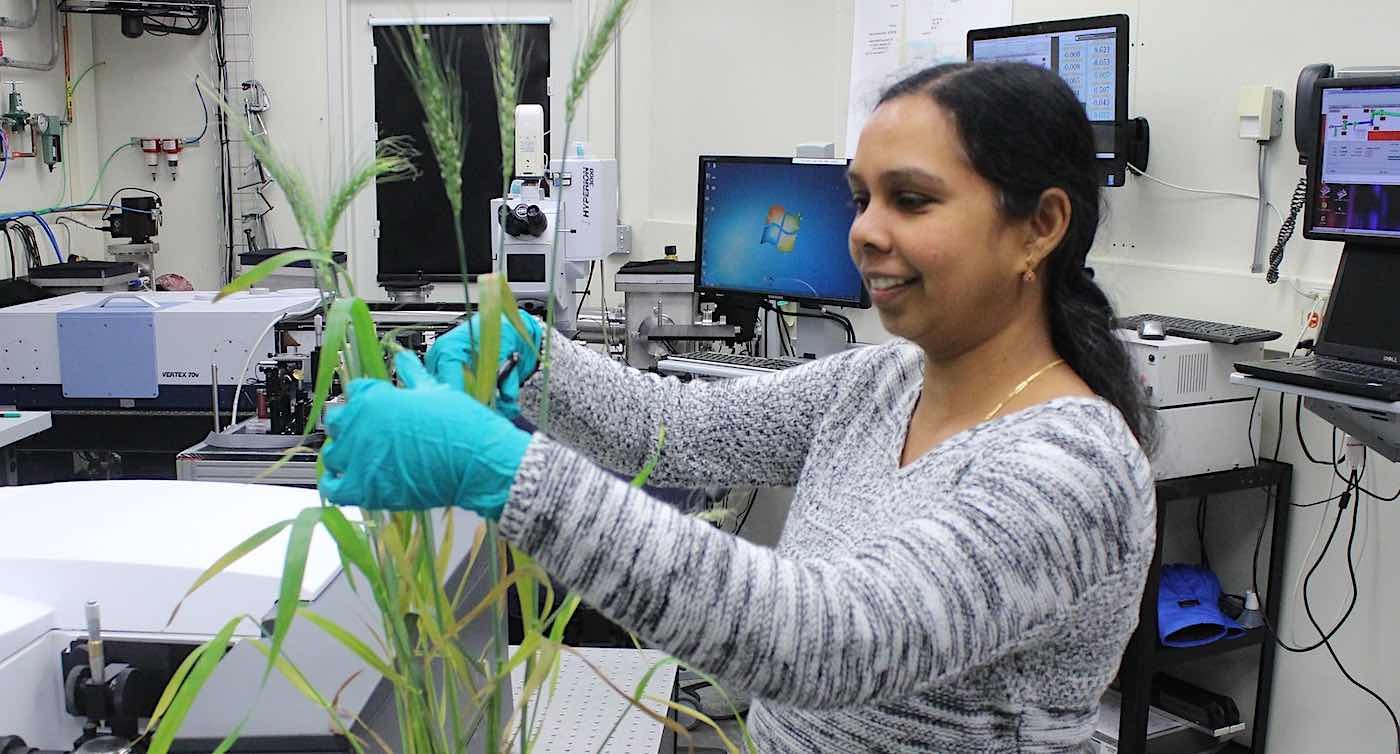November 28, 2025 | 04:31 GMT +7
November 28, 2025 | 04:31 GMT +7
Hotline: 0913.378.918
November 28, 2025 | 04:31 GMT +7
Hotline: 0913.378.918

By Canadian Light Source, CC license.
‘Tailings’ is the official industry term for mineral waste leftover after separating away all the useful metals from mined material. Typically toxic from heavy metals and unusable for anything else because of this, tailings are kept in storage facilities to prevent them from polluting groundwater or farmland.
Hoping to save billions of dollars in such storage fees and remove the threat of disasters that occur when such facilities break down or are abandoned, a team from the universities of Queensland and Saskatchewan sought to see whether it was possible to convert this lifeless rock into healthy soil by returning microbial life to it.
“Tailings have no biologically friendly properties for growing plants. Roots and water cannot penetrate them, and soluble salts and metals in tailings can kill plants and soil microbes,” said Longbin Huang a professor at the Univ. of Queensland. “If you wait for nature to slowly weather the tailings and turn them into soil, it could take a couple thousand years.”
Using the Canadian Light Source (CLS), Huang and his team found a way to accelerate this process of repopulating the tailings with soil microbes.
The CLS is a giant synchrotron, a type of circular particle accelerator. It works by accelerating charged particles (electrons) through sequences of magnets until they reach almost the speed of light.
Using the CLS’s synchrotron light the scientists could visualize the detailed mechanism of how they were able to develop the organic-mineral interfaces and revitalize the tailings.
“We needed to use the SM beamline to unravel at the nanometer scale the immediate interfaces and how the minerals change, and how they interact with organics,” said Huang. “The facility access and the expert inputs of the beamline staff were critical to enable us to collect quality data and therefore to have reliable scientific evidence.”
Their data allowed the scientists to successfully recolonize mine tailings with soil microbes after the tailings had been amended with plant mulch. These soil microbes consume certain residual organics and minerals, aggregating them into what are referred to as soil particles.
“You have microbially active surfaces in soil crumbs that develop a porosity in compacted tailings that allows the gas, water, roots, and microbes to survive, just like in arable soil,” said Huang. “Therefore, the dead mineral matrix of tailings becomes a soil-like media that will enable plants to grow.”
Huang noted that this process—which can occur in as little as 12 months—can also be used to restore soils damaged by over-farming, overuse of fertilizers, and climate change.
Mining is extremely necessary for our developed world. Many of the world’s largest copper and iron mines are decades, even centuries old, and with global copper needs alone estimated to double by 2050, all that mine waste will need a more sustainable home.
We’ve also been hearing now for many years about the world’s top soil having only a certain number of harvests left before it becomes irrevivably lifeless dust. Although this is heavily disputed.
Nevertheless, Huang and his team seem to have provided means to clear two hurdles in a single bound with little more than soil, mulch, tailings, and microbes.
(GNN)

(VAN) A new study reveals how the simultaneous effects of ocean acidification, salinity and loss of oxygen are making the world more fragile.

(VAN) Hopes are growing that the creation of the first 3D turkey gut model could be a turning point in the battle against the virulent blackhead disease.

(VAN) Tyson, America’s biggest meat supplier, plans to shutter one of its largest beef processing plants as the industry continues to struggle with low cattle supplies and political pressure from Washington.

(VAN) New FAO study shows how digital solutions are empowering farmers and fishers to prevent losses and build resilient agrifood systems.

(VAN) Brazil's COP30 presidency pushed through a compromise climate deal on Saturday that would boost finance for poor nations coping with global warming but that omitted any mention of the fossil fuels driving it.

(VAN) Poultry farmers in the UK have been warned that they could face one of the worst winters yet for bird flu.

(VAN) Prices of main-crop paddy have risen sharply, with jasmine rice hitting 16,100 baht per tonne — the highest level in years.